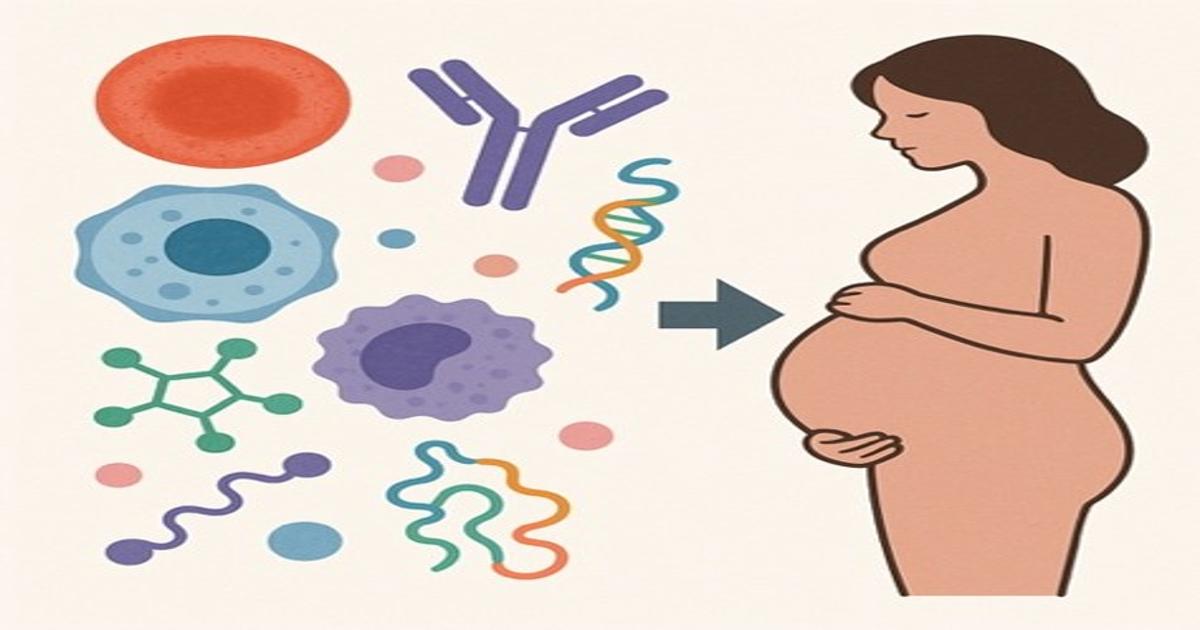Cellular Mechanisms in Pregnancy and Foetal Development
A special issue of Cells (ISSN 2073-4409).
Deadline for manuscript submissions: 31 March 2026 | Viewed by 1334

Special Issue Editors
Interests: metabolism; cell culture; metabolic flux; glycolysis; placenta; ace2; organoid; RNA
Interests: deficit hyperactivity disorder; neural crest; developmental biology; dlx genes; evolution; craniofacial develipment; neuronal differentiation; behavior; homeobox genes; reproduction
Special Issues, Collections and Topics in MDPI journals
Special Issue Information
Dear Colleagues,
Pregnancy is a finely orchestrated process involving complex cellular and molecular interactions among the mother, the placenta, and the developing foetus. Disruption to these processes can lead to pregnancy complications with lifelong consequences for maternal and child health. A deeper understanding of the cellular mechanisms that underlie fertilisation, implantation, placental development, foetal growth, and maternal adaptation is therefore essential in improving pregnancy outcomes worldwide.
Despite remarkable advances in clinical care and technology, our knowledge of the fundamental biology of pregnancy remains incomplete. For example, even the basic mechanisms of placental ageing are only just beginning to be unravelled, yet these processes are increasingly recognised as critical drivers of complications such as foetal growth restriction and stillbirth. This gap between mechanistic understanding and clinical application limits our ability to achieve real-world advances in healthcare, underscoring the urgency of further discovery research.
This Special Issue will explore fundamental and translational advances in this field. Topics of interest include cellular pathways regulating trophoblast and placental development; foetal and maternal cell signalling; immune interactions at the maternal–foetal interface; mechanisms of placental ageing and dysfunction; the epigenetic and transcriptional regulation of foetal growth; the metabolic and endocrine control of pregnancy; mechanisms involved in fertility and implantation; and innovative in vitro and in vivo models to investigate cellular dynamics. We particularly encourage contributions addressing how these mechanisms intersect with pregnancy complications.
Dr. Anya L. Arthurs
Dr. Giovanni Levi
Guest Editors
Manuscript Submission Information
Manuscripts should be submitted online at www.mdpi.com by registering and logging in to this website. Once you are registered, click here to go to the submission form. Manuscripts can be submitted until the deadline. All submissions that pass pre-check are peer-reviewed. Accepted papers will be published continuously in the journal (as soon as accepted) and will be listed together on the special issue website. Research articles, review articles as well as short communications are invited. For planned papers, a title and short abstract (about 250 words) can be sent to the Editorial Office for assessment.
Submitted manuscripts should not have been published previously, nor be under consideration for publication elsewhere (except conference proceedings papers). All manuscripts are thoroughly refereed through a single-blind peer-review process. A guide for authors and other relevant information for submission of manuscripts is available on the Instructions for Authors page. Cells is an international peer-reviewed open access semimonthly journal published by MDPI.
Please visit the Instructions for Authors page before submitting a manuscript. The Article Processing Charge (APC) for publication in this open access journal is 2700 CHF (Swiss Francs). Submitted papers should be well formatted and use good English. Authors may use MDPI's English editing service prior to publication or during author revisions.
Keywords
- pregnancy
- fetus
- reproduction
- placenta
- maternal
- fertility
- preeclampsia
- fetal growth restriction
- gestational diabetes
- stillbirth
Benefits of Publishing in a Special Issue
- Ease of navigation: Grouping papers by topic helps scholars navigate broad scope journals more efficiently.
- Greater discoverability: Special Issues support the reach and impact of scientific research. Articles in Special Issues are more discoverable and cited more frequently.
- Expansion of research network: Special Issues facilitate connections among authors, fostering scientific collaborations.
- External promotion: Articles in Special Issues are often promoted through the journal's social media, increasing their visibility.
- Reprint: MDPI Books provides the opportunity to republish successful Special Issues in book format, both online and in print.
Further information on MDPI's Special Issue policies can be found here.







